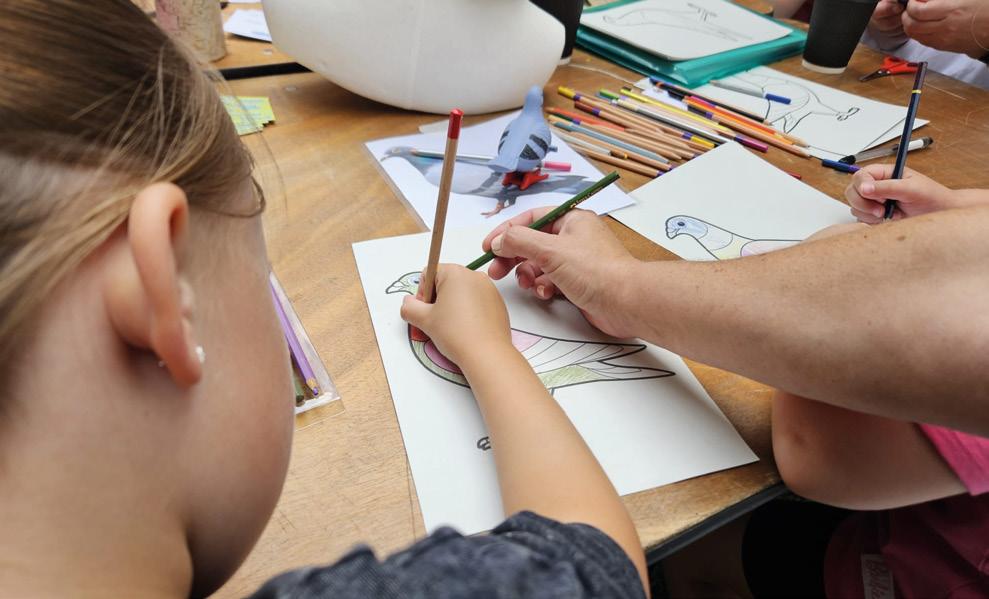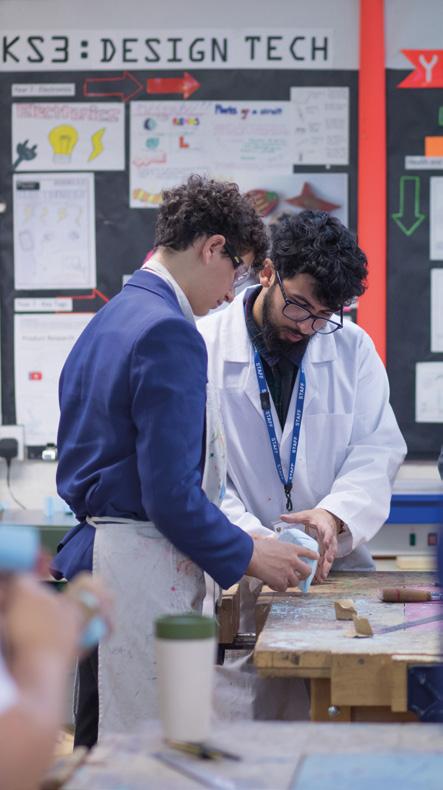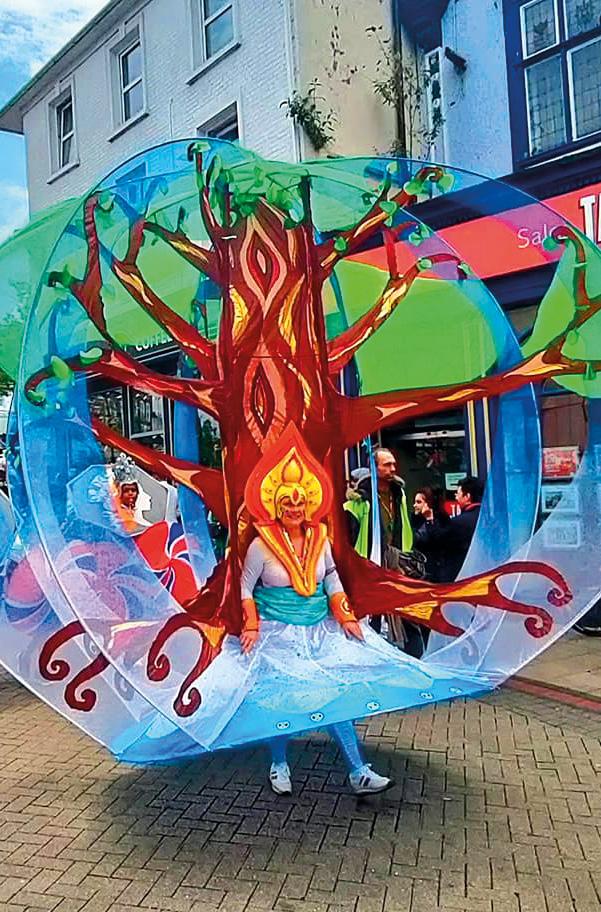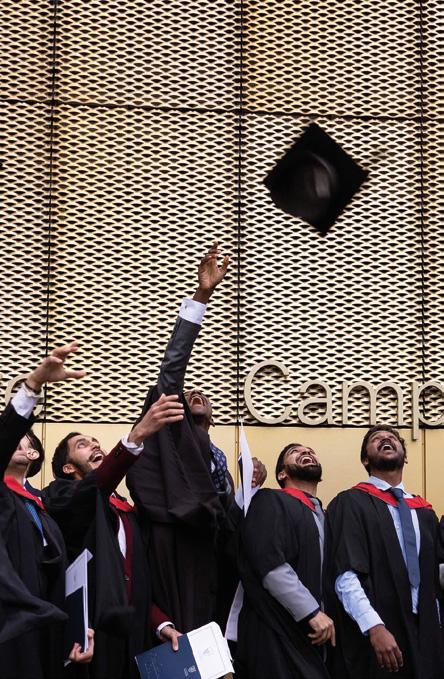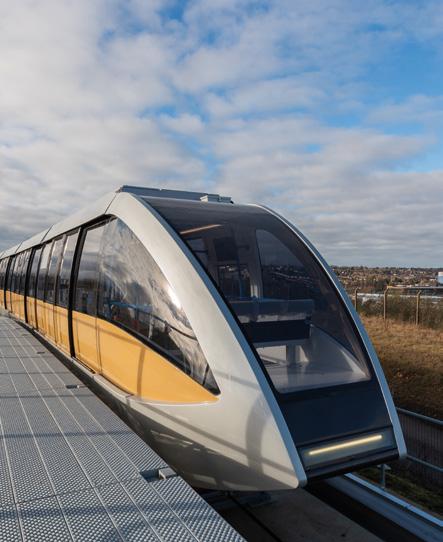








Our Civic Agreement, launched in April 2023, is a testament to the shared commitment of the University and Luton Council to the town-wide Luton 2040 Vision. This joint effort aligns our strategies and actions, aiming to make Luton a healthy, fair, and sustainable town where everyone can thrive and no one lives in poverty.
We hold a strong belief in the immense value of Luton’s cultural diversity. We recognize the transformative power of education, enterprise, innovation, and research in driving meaningful change and addressing long-standing societal problems. This belief inspires our actions and fills us with hope for the future.This annual report provides details of a highly successful first year for the Civic Agreement. Our teams, along with local, regional and national partners, worked together to secure over £3 million of funding from national bodies that will support the next phase of the Luton Fairness Task Force and the delivery of the Art’s Council Luton Place Partnership Programme. The delivery of these funded projects will be a key focus for our Civic Agreement work over the next three years.
Delivering the Civic Agreement necessitates system-wide partnership working. We are deeply grateful to all the residents and organisations across the private, public, voluntary, and community sectors. The collaboration on actions designed to deliver opportunity and prosperity, support
social mobility and sustainability, and drive innovation and economic growth is truly appreciated and recognised.
The Civic Agreement committed us to deliver special projects focussed on enhancing place, public life and partnerships. The four case studies in this annual report are examples of successful projects in these areas of activity and our progress in addressing the Luton 2040 vision’s five priorities:
We feel our first year successes are of both local and national significance. The Labour government elected in 2024 is committed to five missions to rebuild Britain focussed on economic growth, clean energy, the NHS, barriers to opportunity and street safety. The successes and case studies show how the Civic Agreement delivers on these national missions as well as the Luton 2040 Vision.
Building an inclusive economy that delivers investment to support the growth of businesses, jobs and incomes.
Improving population wellbeing and tackling health inequalities to enable everyone to have a good quality of life and reach their potential.
Becoming a child-friendly town, where our children grow up happy, healthy and secure, with a voice that matters and the opportunities they need to thrive.
Tackling the climate emergency and becoming a net-zero town with sustainable growth and a healthier environment.
We hope you enjoy reading about this first year of progress as evidence of how the Civic Agreement delivers our joint commitment to drive positive change for Luton that benefits all our communities.

Supporting a strong and empowered community, built on fairness, local pride and a powerful voice for all our residents.
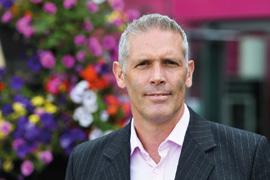
Chief Executive
The first year of the Civic Agreement involved the University and the Council working on 39 joint projects, delivering across all five of the Luton 2040 vision priorities and supporting the University’s strategic goals for student learning, research and widening access to higher education.
The Civic Agreement contains 17 long term joint commitments and key success measures for year one linked to these commitments focussed on:
• Developing joint projects across all five Luton 2040 priorities.
• Submitting successful joint funding applications for future collaborative work.
• Establishing and implementing a governance framework to build shared capacity.
• Delivering joint projects linked to the University’s new £3 million investment in the Bedfordshire, Luton & Milton Keynes Integrated Care System Research & Innovation Hub.
• Building on the pioneering work of the Luton Fairness Taskforce.
39
JOINT PROJECTS
WITH A VALUE OF £3.56 MILLION
Funding gained from a range of local and national bodies including the NHS, National Heritage Lottery Fund, and Shared Prosperity levelling up funding
NEW UNIVERSITY CULTURE AND COMMUNITY ENGAGEMENT TEAM
WORKING WITH LUTON COUNCIL ON A FURTHER £3.6 MILLION
22
JOINT PROJECTS
LUTON 2040 VISION PRIORITY 2
‘improving population wellbeing and tackling health inequalities’
THE FOCUS FOR 18 JOINT PROJECTS
BENEFITTING OVER 1,000 PARTICIPANTS
• Delivering actions that value and develop Luton’s heritage and cultural identity
• Instrumental in fostering community engagement
• Promoting the rich cultural heritage of Luton
FUNDING SECURED IN 2023-24
FACILITATING CIVIC AGREEMENT WORK OVER NEXT 3 YEARS
• Fairness Task Force
• Arts and culture Place Partnership Luton Programme
• Luton town Heritage Strategy
These projects, led by the council, involve a range of partners but the University is a key delivery partner on education, research, participation in higher education and cultural innovation.
30 SCHOOLS
Many projects, as the case studies show, deliver on more than one Luton 2040 priority AND 3,000 RESIDENTS
to advance creative development and educational pathways that harness creativity for economic and social development THAT HAS ENGAGED WITH
The Civic Agreement hopes to contribute to a positive economic future for Luton based on past success.
• Luton had the highest net new job creation in British cities and large towns 2010-2022, even ahead of London.
• Luton has the second highest business start-up rate in the country.
The University contributes significantly to local economic growth. A recent economic impact study showed that in the South East Midlands region the University in 2021/22 generated a total of £229m Gross Value Added per year, equivalent to 4,116 jobs.
Luton had the highest net new job creation in British cities and large towns 2010-2022, even ahead of London…
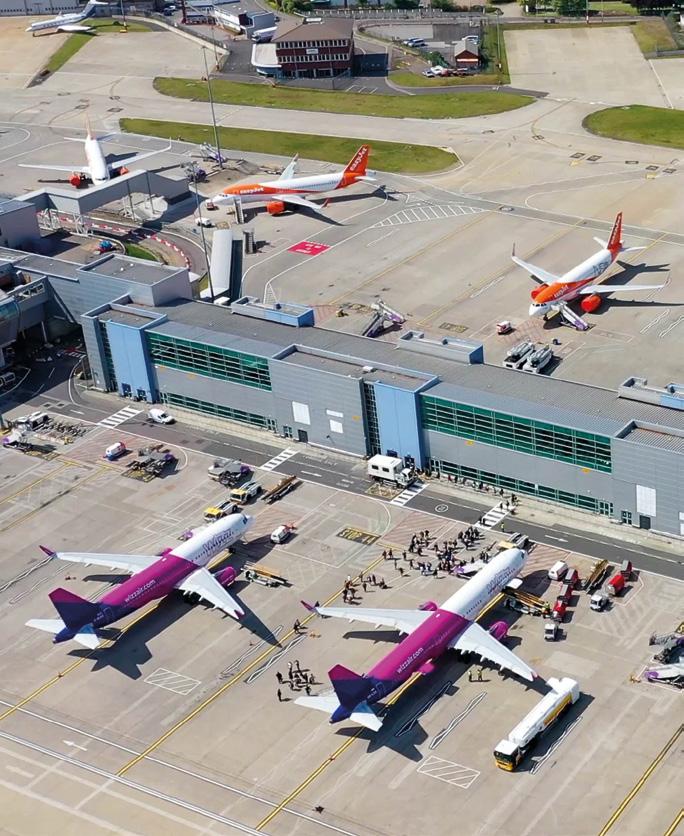
We established the following new governance structures to support the delivery of the Civic Agreement.
A Programme Board comprised of leaders will meet twice a year to hold the profile and vision of the Civic Agreement, oversee the strategic progress of the agreement, assess risks and monitor progress against our measures of success.
The Knowledge and Innovation Group will arrange an annual Civic Agreement forum that will bring together a range of stakeholders to celebrate success and present priorities for the coming year.
A Knowledge and Innovation Group comprised of staff with key strategic roles in the Council and University will meet three times a year to serve the Civic Agreement process by identifying actions for collaboration and partnership working against the five priorities, reporting on ongoing networks with other stakeholders, aligning Civic Agreement activities to wider policies and programmes and advising on the knowledge and research base that informs delivery of the agreement
The first Annual Forum involves launching this report and discussing priorities for the next three years.
The Knowledge and Innovation group has been core to the partnership working involving around 15 staff from each organisation developing the priorities and actions that have delivered our 39 joint projects in the first year. The group has also focussed in the first year on building trust, developing shared capacity, and submitting joint funding bids.
The Civic Agreement has played an important role in enabling the University and the Luton Borough Council to develop new partnerships or considerably strengthen existing collaborations. The Civic Agreement has communicated the University’s strong commitment to the town and the University is now the official higher education partner for Luton Town Football Club that has provided new work experience opportunities for over 100 of our students. NHS partners are now seeking to make greater use of the University’s health facilities at the Luton campus building on an already strong research relationships with the Luton and Dunstable hospital.
In addition, the Civic Agreement has paved the way for supporting skills and employability and developing pathways, pipelines, and opportunities for our residents. The partnership has also helped support the town’s new place and investment brand, Step Forward Luton.
The University supported the Luton Borough Council and other partners in hosting Radio 1 Big Weekend, which brought £6.7 million to the local economy. The Civic Agreement has also supported the work led by Luton Rising, the growth of the Airport and the new developments proposed at Green Horizons Park and Bartlett Square.
Next year the Knowledge and Innovation group will refine our success measures, which in year one, focussed on developing joint projects and securing funding. The group will also devise a set of future projects and a revised evaluation approach for the Civic Agreement strategically linked to the detailed evaluation frameworks being developed by three key projects on which the University and Council are delivering in partnership – the Fairness Task Force, the Place Partnership Luton Programme, and the Anchors Framework.
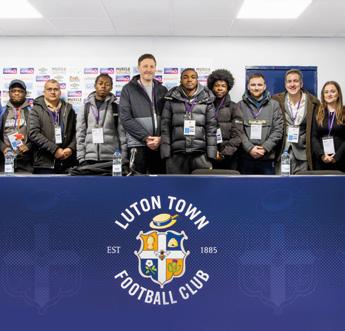
The next stage of developing the Fairness Taskforce is funded over a three-year period by £1.9 million of funds jointly secured from the National Lottery UK Fund by Luton Borough Council, Bedfordshire and Luton Community Foundation, The Young Foundation and the University of Bedfordshire. Through its co-designed action learning approach, this project aims to evolve a community-led plan that is fully integrated with the Luton 2040 partnerships systems and can shape and deliver the change that will lead to greater equity in the town. The project will see improved and more:
• Effective collaboration across Voluntary, Community, Faith, and Social Enterprise partners.
• Community leadership and organising for social justice and equity.
• System learning, Fairness Task Force development and impact evaluation.
Evaluation of impact and outcomes will be co-designed with partners and citizens…
Evaluation of impact and outcomes will be co-designed with partners and citizens with a focus on key Luton 2040 Vison priorities, including:
• More people feeling connected to their communities with a better understanding of citizen democracy and how they can directly shape the future direction of the town.
• Improvement in the Social Progress indicators.
• More people voting and taking part in elections as they feel more engaged with delivering change.
• New approaches to resource allocation, decision making and learning shaping future programmes, locally and nationally.
• A more cohesive town built on fairness.
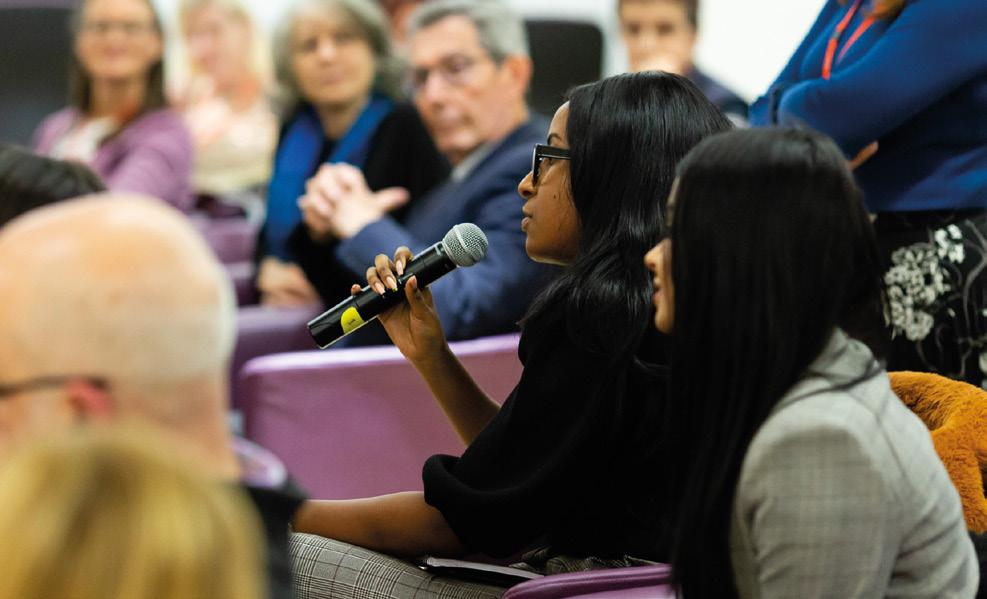
Luton was successful with a place partnership application to the Arts Council to deliver a £1.5 million programme. The bid was led by the Luton’s arts and culture and strategy group, of which the council and University are key partners, along with the four national portfolio organisations – UK centre for the Carnival Arts, Tangled Feet, Music 24, The Culture Trust, and Revoluton. The existing Local Cultural Education Partnership led by the University will be central to the programme. Over the next two years, the programme will transform arts and culture delivery in Luton. Harnessing
the energy of our creative community, we will create and implement activities that grow in scale, ambition, and reach so that by 2026, Luton is ready to make the most of the significant investments coming to our town. Key success measures will include:
• Young people engaging in high quality cultural learning.
• Toolkits disseminated and training delivered.
• Luton recognised for creative leadership.
• More investment secured for projects.
• More creative education and training pathways.
• Significant new investment secured for culture.
Harnessing the energy of our creative community, we will create and implement activities that grow in scale, ambition, and reach…

The new Anchors framework for Luton is a pivotal development that will be integrated with our Civic Agreement work over the next three years. Luton's Anchor organisations, at the heart of delivering Luton's 2040 vision, are not just potential drivers of change, but integral partners in this journey. The decisions anchors make about their operations can greatly enhance their contribution to places, supporting growth, inclusion, and environmental goals simultaneously. This can lead to a substantial increase in local employment, business growth, skills, incomes, and health and well-being. The framework's primary focus is on fostering shared projects and initiatives, uniting us in our mission to collectively achieve real social value. Work is now underway on co-producing the framework with anchors, which will also include key KPIs and action plans to deliver:
• A new social value framework and fund for Luton.
• More of the Luton pound kept in Luton.
• Good Business Charter.
• A real living wage town.
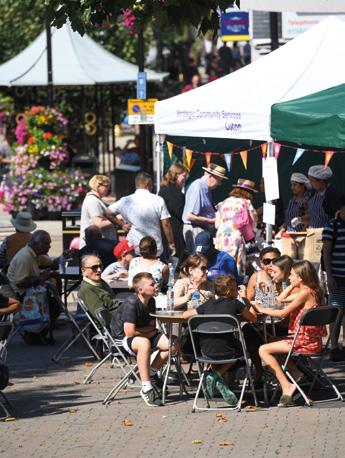
… fostering shared projects and initiatives, uniting us in our mission to collectively achieve real social value.
The case studies align closely to one of the Luton 2040 priorities but all address other priorities as well. They not only demonstrate the successful delivery of our Civic Agreement commitments but also pave the way for future initiatives. They show how close partnership working between the University, the Council and other local partners is delivering our Civic Agreement commitments.
…to
improve population health and support our system partners with providing good quality health and care…
Improving wellbeing and reducing health inequalities
The University of Bedfordshire is one of the six Anchor Institutions in the East of England that received funding from Health Education England and NHS England to support integrated care implementation. The funds were used to form the Bedfordshire, Luton and Milton Keynes Integrated Care Service (BLMK ICS) Research and Innovation Hub which works closely with the BLMK Integrated Care Board as well as several other system partners such as Luton Borough Council, Bedfordshire Hospitals NHS Foundation Trust, Voluntary, Community and Social Enterprise partners to provide reliable evidence that can be used to enhance health and care for everyone in BLMK.
The Hub’s overall aim is to improve population health and support our system partners with providing good quality health and care with particular emphasis on:
• Ascertaining user needs and addressing health and social care inequalities.
• Supporting and developing the workforce to provide integrated population care.
• Building capacity and competence for research and innovation.
• Providing subject matter expertise to research and innovation projects.
Our health and care research traditionally follows a life-course approach, from pre-birth to end-of-life, with special interest in addressing
structured inequalities. One of the approximately 20 projects that the Hub is hosting is our work with Bedfordshire Hospitals NHS Foundation Trust to support the clinical management of obesity in adults from low socioeconomic status and minority ethnic groups. This work is producing the empirical evidence for improving the implementation, adherence, and uptake of eHealth and mHealth lifestyle change interventions in the management of adult obesity.
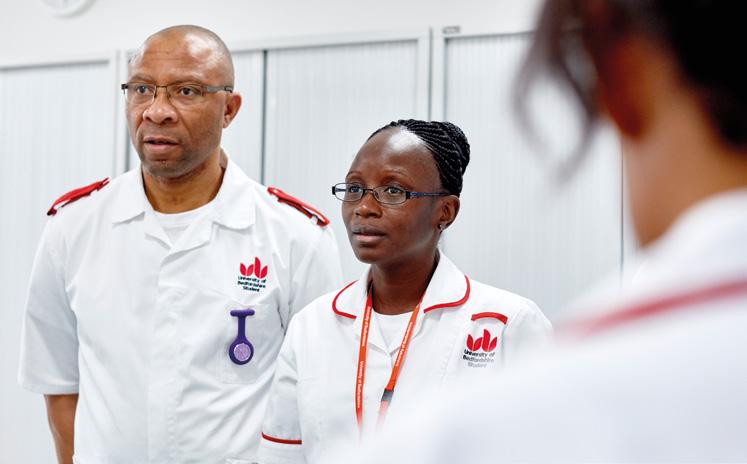
Becoming a child-friendly town
Becoming a net-zero town
Funding was secured from the Local Government Association to explore young people’s perceptions of energy use in the home and barriers to energy efficient behaviours. Historically, the Council has experienced difficulties in engaging young people from local communities in various council initiatives.
The proposed solution was the adoption of an innovative research and engagement method known as the World Café approach. In the first year, five world café events with young people were facilitated involving 97 participants from local colleges, youth groups and the University.
The World Café approach proved to be effective in engaging young people with ideas to conserve energy and dispelling myths:
• Despite having a good understanding of climate change and the need to reduce carbon emissions, this was not a significant enough driver to influence behaviour change around energy use in the home for young people.
• The main driver for behaviour change was cost reduction. “Saving the planet” was seen as an additional but consequential benefit.
• The main driver for behaviour changes amongst those young people living at home was the influence of parents/families, who were themselves focused on cost reduction.
• Participants demonstrated an excellent level of understanding of climate change and carbon emission, but many indicated that they were not aware of actions that they could take to reduce energy consumption.
The level of engagement during the World Café events has demonstrated ways for the Council to improve communication with local communities around energy, but in particular with a focus on opportunities for saving energy costs.
The project team had subsequently run World Café events with a number of other councils and published a guide for local authorities on running World Café events.
Further details can be found here https://www.local.gov.uk/case-studies/ energetic-lifestyles-engaging-youngpeople-development-andimplementation-carbon
The main driver for behaviour changes amongst those young people living at home was the influence of parents/families…
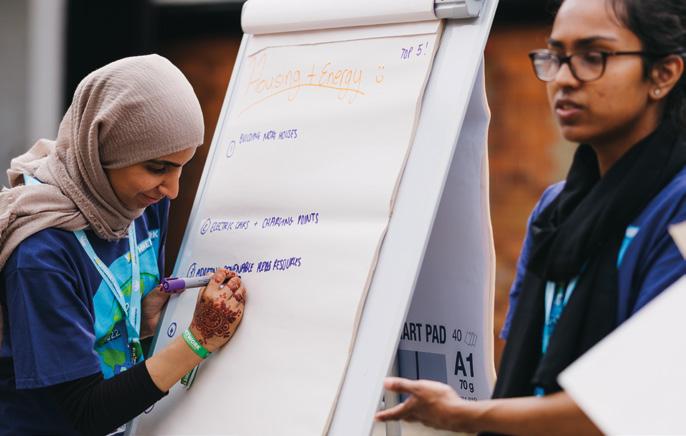
The Substance Misuse and Ageing Research Team (SMART) team at the University was commissioned by the Council to carry out a study of ‘begging’ (raising funds) and street drinking in Luton, in response to concerns raised by the local community and businesses.
The research team worked closely with a number of local agencies supporting street drinkers and rough sleepers. This included NOAH (a Luton charity working with the most disadvantaged people in the town, particularly people who are homeless) and Resolutions (providing tailored support for alcohol and drug use and after care for people in recovery).
SMART interviewed 24 people, more than three quarters of Luton’s street community plus 15 professionals from support and enforcement services. The research identified multiple barriers that people involved in street activities face and many examples of policies and practices that make it difficult for them to move away from a life of street drinking and homelessness. The SMART team presented a series of recommendations to stimulate discussion among a range of stakeholders to develop a better understanding of the issues facing people involved in street activities and that keep them on the streets.
Luton Borough Council responded quickly to the main recommendation to set up a task and finish group for stakeholders to develop an action plan to address some of the issues raised in the report. Members of SMART sit on the group, along with councillors, housing, substance misuse and other third sector providers, Bedfordshire Police, NHS, social services, and council staff. The group meets regularly and feeds into the Luton Town Centre Group responsible for town centre improvements and economic development. People involved in street activities are also part of the future work.
The research findings have led to a shift in understanding of street drinking and raising funds, and the need for change. Some changes are already happening in Luton, for example, a finding that some people involved in street activities were not able to afford transport to health and social care appointments has resulted in free bus passes being provided to 30 people so they can attend appointments. The installation of lockers for rough sleepers to store their belongings safely so that they can attend appointments, is also being considered.
…some people involved in street activities were not able to afford transport to health and social care appointments…
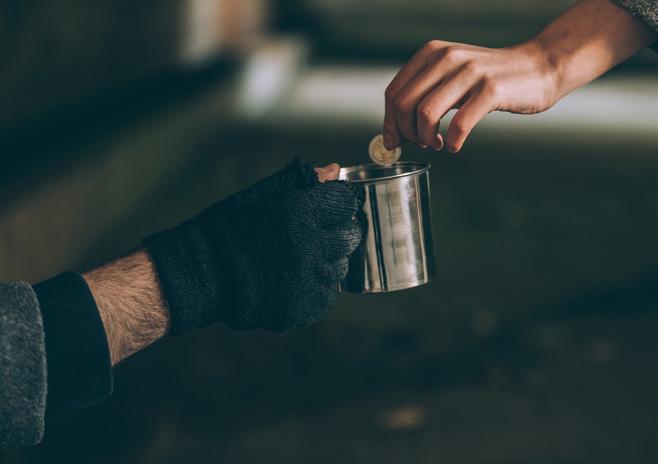
Becoming a child-friendly town
Enable everyone to reach their potential
Luton’s virtual school is a service provided to promote and coordinate educational support for looked after children and care leavers as part of the Council’s statutory provision to support the educational progress of children in care.
It is not a physical school, but it brings together educational information about each young person as if they were in a single school so that:
• Progress can be tracked.
• Support can be identified and offered.
• Additional resources provided if necessary.
…this creative programme of activity was co-created with young people…
The University of Bedfordshire as part of its’ role in the Luton Cultural Education Partnership worked with the Council to bring insights, skills, resources, people, and ideas into a new creative taster project for local looked after children. The development and delivery of this creative programme of activity was co-created with young people and markedly increased the creative elements in their learning.
The University also supports the Virtual Schools’ Bright Star Awards, held in the summer term of the academic year, for looked after children in care from year 9 until they leave care. The awards are given to those young people who have made great achievements in their educational lives during the year. The evening is charged with emotion and pride and reflective of the positive accomplishments of Luton’s looked after young people.
Collaborations such as these with the Virtual School, are central to the delivery of the University’s Access and Participation Plan by promoting equality of opportunity for higher education, ensuring young people are not disadvantaged by their backgrounds and increasing the numbers of students from a care background.
